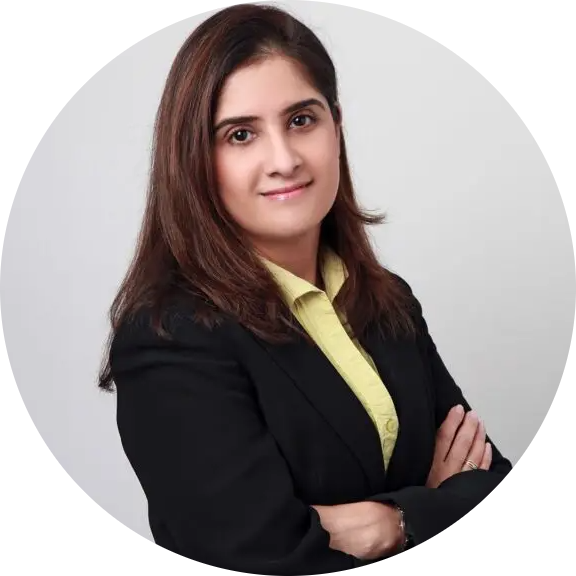In this article we explore the similarities and differences between the English divorce process and the provisions of the UAE Personal Status Law (For Non-Muslim Ex-pats)* when dealing with family matters. It is to be noted that procedures can vary depending on the Emirate in the UAE.
*Federal Decree No 41 of 2022 on Civil Personal Status applies to all the Emirates except Abu Dhabi where Resolution No (8) of 2022 and Law No. 14 of 2021 apply for the Abu Dhabi Civil Family Court.
Divorce process in UK –
- No fault Divorce with applications being made jointly on unilaterally. Federal Decree No. 41 of 2022 and Abu Dhabi Law No. 14/2021 enables either spouse to seek divorce unilaterally without the need to prove fault or blame the other party.
- The new Laws also abolish the requirement for the case to be initially referred to the Family Guidance Committee.
- The application is submitted either online or at one of the Al Adheed Centres (authorised by the Dubai Courts to provide specific judicial services).
- Once the application is accepted, the Courts will notify the Party / Parties of a hearing date.
- At the hearing, the Divorce becomes effective upon the Court’s judgment and subsequent notification to the other party where the application is made unilaterally.
Time to obtain a Divorce in UK –
A divorce in the UK can take over six months as there is a mandatory 26 weeks waiting period, consisting of 20 weeks for the completion of the conditional order and 6 weeks for that of the Final Order. If there are financial matters to be agreed or discussed, the divorce may take longer due to the time it may take to reach a financial settlement.
Time to obtain a Divorce in UAE –
The divorce may be concluded within 1 – 3 months depending on the Court availability. As the divorce process involves two distinct components: the divorce decree and the marital settlement, the time taken to conclude proceedings depends on whether the Court needs to consider matters such as family finances and children matters.
- Costs* in UK – The application fee is £593.
- Costs* in UAE – The application fee is AED 200.
*You may or may not instruct a Solicitor/ Lawyer to assist you with the divorce process in either jurisdiction. The fees stated above are only application fees and the costs of legal representation should be obtained from the Solicitor / Lawyer.
Finances matter UK –
Matters can be discussed between the spouses; the spouses can engage in Mediation or Arbitration or they can ask the Court to make decisions in respect of family finances. Either party can make an application through the English Courts for financial relief.
Whichever route is taken, reference should be made and consideration given to Section 25 of the Matrimonial Causes Act 1973 which takes into account various factors including the income, earning capacity, property and other financial resources which each party has; the financial needs, obligations and responsibilities which each of the parties has or is likely to have in the foreseeable future; the standard of living enjoyed by the family during the marriage; the age of the parties; the duration of the marriage; the contributions which each party made or is likely in the foreseeable future to make to the welfare of the family and the conduct of each party.
When considering financial settlements concerning children, the court shall have regard to the financial needs of the child; the income, earning capacity (if any), property and other financial resources of the child; any physical or mental disability of the child and the manner in which the child was educated and in which the parties expect the child to be educated.
It is therefore imperative to seek specialist legal advice when discussing or entering into negotiations so that you are fully aware of your rights and obligations.
Finances matter UAE –
Unless mutually agreed by the parties, after the issuance of a divorce judgment, only a divorced woman can apply for alimony from her ex- husband. When considering such applications, the Court has the discretion to determine the amount and duration of alimony based on factors outlined in Article 9 of Federal Law No (41) of 2022 and Article 8 of Abu Dhabi Law No. 14/2021 such as the duration of the marriage, the age of the wife, the economic status of each spouse, the contributions to the divorce, and any material or moral damages suffered.
The divorced woman’s alimony is forfeited in the event of her re- marriage and in the event that her custody of the children ends for any reason. In addition, the father will need to bear the expenses and cost of the mother’s custody of the children during any joint custody for a period not exceeding two years.
The divorced woman may make a new application to amend alimony after each year according to any change of the relevant circumstances.
Child arrangements UK –
As with financial matters, assistance can be provided through Mediation or Arbitration. However, if an amicable resolution cannot be reached, the parties can apply for assistance through the English Court for various Orders including Child Arrangements Orders (for matters such as where your child lives;
when your child spends time with each parent; when and what other types of contact take place), Specific issue Orders (which address specific questions about how the child is being brought up) and prohibited Steps Orders (to stop the other parent from making a decision about the child’s upbringing).
Prior to issuing any application in relation to a child, advice should be sought as to the English Courts ability to seize jurisdiction in matters concerning children who are habitually resident in another jurisdiction.
Child arrangements UAE –
Article 10 of Federal Law No 41 of 2022 and Article 9 and 10 of Abu Dhabi Law No. 14/2021 provides for custody of a child to be shared equally by both parents to prevent the child from any psychological damage. However, if there is a dispute over custody, the Court will intervene and make the decision in the child’s best interests.
The above information is a general overview of the similarities and differences in each jurisdiction. For specific information or advice in relation to any matters relating to Divorce and associated subjects, please contact our Divorce Lawyers in Dubai.

Head of Family Law / Senior Consultant

